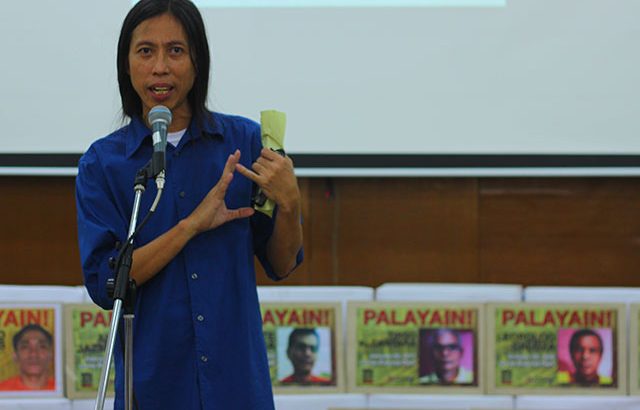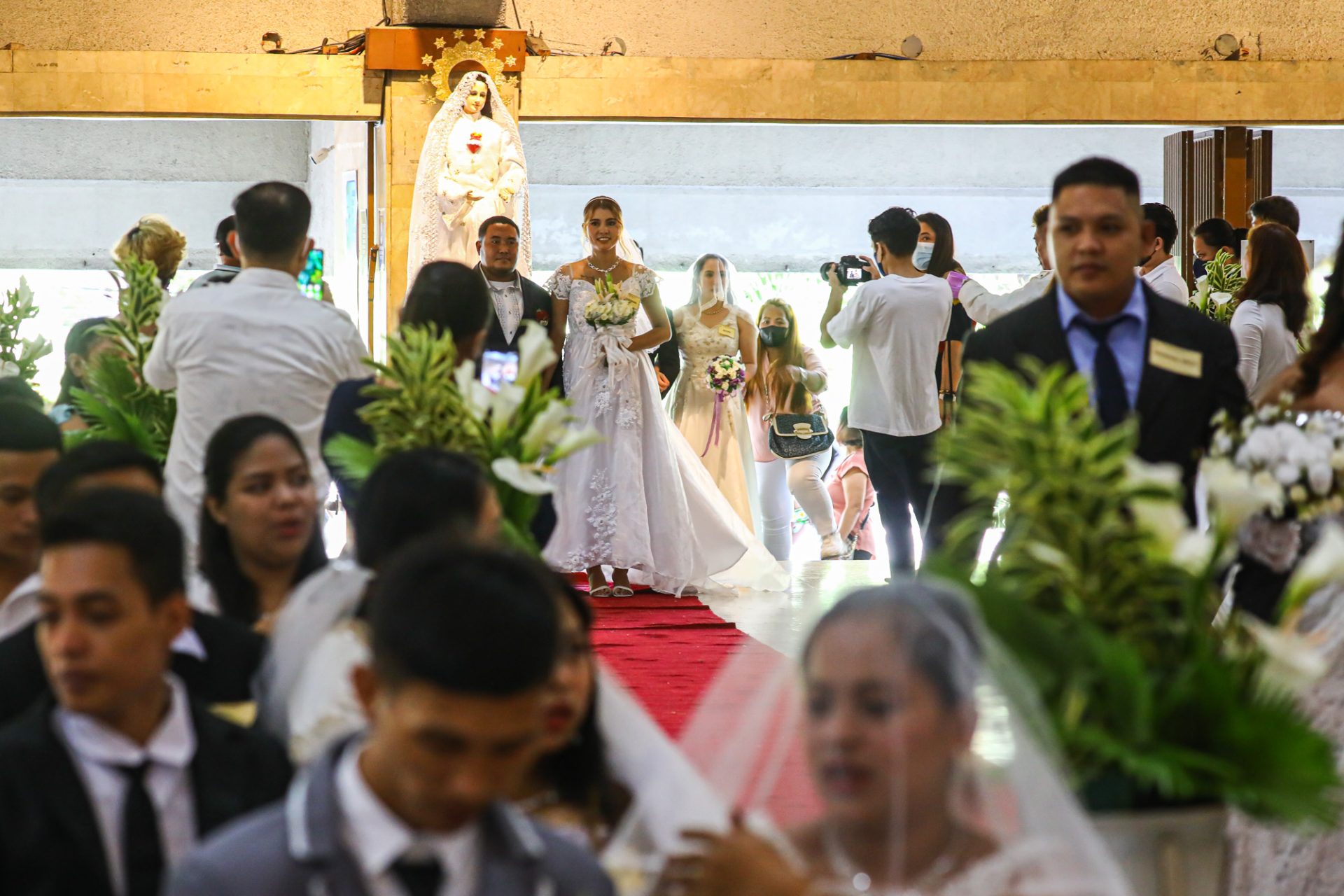Both joy and sorrow are part of one’s life but when they happen one after the other in a matter of days, one wonders “Where have you hidden beloved? You fled like a stag after wounding me. I went out calling you but you were gone.” (John of the Cross)
A few days ago, a dearest relative got married to the love of his life. This occasion was the boy’s opportunity to celebrate with his “new” family for the first time.
But let me first start from the beginning. Like a teleserye (a television series), the unfolding of the events is as interesting as the ending. We are that boy’s “new” family.
David grew up with his mother and stepfather. Although aware that his stepfather was not his biological father, this was not an issue as he had a stable and comfortable family life.
The biological father, Vincent, on the other hand was not aware that his indiscretion when he was barely 17 years old bore fruit.
Both lived normal lives with their respective families, unaware of each other’s existence, although their residences were separated by just a few kilometers. This state of affairs would have continued but for a twist in life when the mother was diagnosed of a terminal illness and she decided that it was the time for David to meet Vincent, his biological father. The mother looked for Vincent’s new residence and told Vincent’s sister about David. The mother died soon after.
The father, curious, sought and found the child, now a full grown adult. The first reunion was like a gentle shower of acceptance of the grace of presence to each other characterized by hugs and quiet smiles. Now aware of each other, keeping in touch, both exchanged greetings on special days and sat down to talk a few times. Not truly knowing about each other except for uncovering a few amazing similarities, the years went by. The few encounters or “talks” were characterized with no recriminations, no blaming and “what ifs” from lost opportunities, just a moving on of discovering each other.
At the wedding, now attended by Vincent’s family, I happened to be a close witness of what I could only describe as a permeation of joy. The bond between David and Vincent was almost palpable. The frequent hugs, the supporting taps on the shoulder of the other, and the approving thumbs up at every turn were indisputably proof of the bond.
As a witness, the experience I had can only be described as savoring your small slice of blueberry cheesecake, taking small pieces at a time, then someone adds more blueberry topping to your dwindling piece.
The generous additional topping, I got two days after the wedding. The father wrote a short note, which goes “Ma’am, this feeling can be nothing else but love. I just welcomed my son, hugged him. He had no gifts to offer, I had no expectations, there was no common past, no knowledge of what we were, just a pure simple acceptance of the present. It was enough that we acknowledged each other.
“I tried to understand the feeling, and this is the only way I can somehow grasp the depth of the tenderness, the heavenly Father accepts us regardless of what we are, irrespective of our past. There are no conditions, just plain acceptance. All The Father needs is that we present ourselves to Him, awaiting His hugs which we can never deserve. It is simply our presence to Him that is required.”
I remained blissfully immersed in the hangover of this witnessing to a deep love.
Without notice, the aftereffect was shattered by news that an esteemed person was shot dead.

What made the news shattering was that this person, Ericson, was deliberately executed even when he was already wounded and helpless. The tragedy is that not only have we lost a cherished intellectual whose driving desire was to help the poor by using his God-given talents, but that the executor used his arms (conflicting reports say that gunshot wounds or stab wounds caused the death) against unarmed defenseless persons.
Contradictory reports hogged the news: The military says the fatalities were killed in an encounter. But eyewtinesses said Ericson and companion, Joseph Jimenez, a peasant organizer, were unarmed and there was no fighting or encounter. They were in the area to conduct interviews, part of Ericson’s job as NDFP consultant. The bodies of the two bore stab wounds according to a rights group.
The Armed Forces of the Philippines dismissed as “propaganda” statements questioning Ericson’s death and an attempt to “romanticize” Ericson’s life by claiming he was a poet and a songwriter.
But the fact that Ericson was an award-winning writer having won the 35th National Book Award for Poetry in Filipino for his book “Mula Tarima Hanggang at Iba Pang Tula at Awit” cannot be denied. That the book was written while he was detained for two years as a political prisoner under circumstances that can break an ordinary mortal’s spirit add impetus to the wonder and awe of admirers.
His father-in-law wrote: “He was arrested without a warrant, while not doing anything illegal or committing a crime; he was not informed of the reason for his arrest at the time he was taken; he was not only denied the right to counsel, he was also denied his phone call and of any other means to contact his family or lawyer; he was tortured.”
He was not only a poet but a songwriter, a journalist and an activist, an editor of the Philippine Collegian, chairperson of the student cultural group Alay Sining and that he acted and directed in a number of plays.
The overwhelming expressions of shock, grief and outrage articulate how respected and valued Ericson was and is in the literature and arts community.
“No painting or song is strong enough to portray the feeling of loss at the death of Ericson.” “There will never be enough words … to capture our grief, are only a few of these expressions.”
Tributes have been posted on various social media platforms.
Those who had the good fortune of knowing him, mourn the painful loss of a brother, a son, a father, a friend, a comrade, a relative and those who knew him through his writings, his poems, songs, likewise feel bereft at the loss of a beautiful, courageous soul, an intellectual who chose to help the poor.
One question keeps pestering in the wake of this violence. What have we become? “A little less than gods or a little more than beasts?” (H. Kushner) Or both? It never ceases to grieve me when I hear accounts of men using superior strength and arms against vulnerable, exposed, frail, unarmed prey and targets behaving more like monsters than human beings.
There is reason to mourn more for those who belong to this kind.
Both pure joy and intense sorrow can bring one down to her knees at the foot of the altar. Thanksgiving for the joy from Him for an undeserved Mercy and pleas for His Mercy in the depths of sorrow from witnessing man’s brutality.
Lord increase your Mercy in us.
“None saw it; Neither did Aminadab appear. The siege was intermitted, and the cavalry dismounted at the sight of the waters.” (John of the Cross)
Edita Burgos is a doctor of education and a member of the Secular Order of Discalced Carmelites. Gunmen — believed to be soldiers — abducted her son Jonas Burgos in Manila in April 2007. He is still missing.







